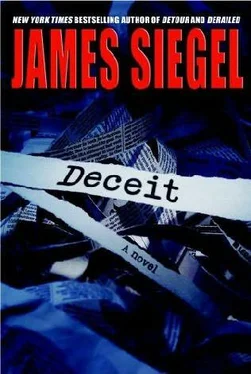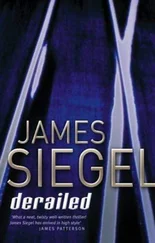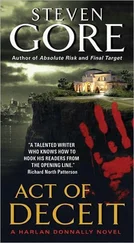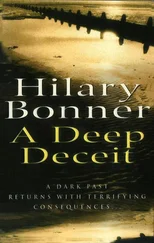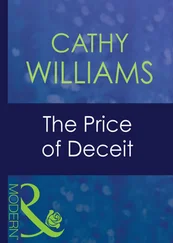I heard him light a match, then the sound of him puffing away interrupted by a cough. Lung cancer?
“You know,” he said, “after the flood, they did a major investigation.”
“I know,” I said. “I read about it. They set up some kind of government commission.”
“Some kind, sure. They subpoenaed the construction company. Hired their own engineering experts to review the dam blueprints, check the requisition orders, the whole nine yards. One thing. The hearings were closed-door . Not open to the public.”
“Was that so unusual?”
“For a Public Works project, very. They said reputations were at stake. No one had been proven guilty of anything. Not yet. They didn’t want anyone’s name dragged through the mud.”
“That’s not unreasonable, is it? I mean, you could make a case for that.”
“You could make a case for anything.” He coughed again. “Let me ask you something. The first time you did it… any pangs of guilt?”
“Did what ?”
“ Lied . Did it prick your conscience or not?”
“Yes,” I said, “it pricked my conscience.”
“But you did it again.”
“Yes, I did it again.”
“Why?”
It was evidently the question of the week. First Anna, now him.
“What’s the difference? I did it. Pick any reason you’d like. Look, why don’t we stick to…”
“I read them.”
“ What? ”
“Your canon of deceit. You know, they’re still online, in that internal review your paper put out there to show the world how diligent it was being. I noticed something. How your stories got progressively wackier. You had a geometrically increasing suspension of disbelief. Nothing was too hard to swallow at first-but later on? Come on. That story about the abortion clinic-bombing pediatrician? Anagrams, secret meetings in deserted fields. It reads like a bad movie. I just wondered if accelerating the outrageousness was on purpose? Maybe you wanted to get caught.”
“I needed to feed the beast.” I said. “That’s all.”
The beast was frightening and ever-voracious, I could’ve added. After a while, I found myself in a game of Can You Top This, only I was playing against myself. It was ultimately exhausting.
I heard him take another puff-the muted background clink-clink of silverware scraping plates. A diner?
“Where was I?” he said.
“The closed-door commission.”
“Right, the commission. They took their testimony and made their report, and in the end they got their pound of flesh. Someone went to jail.”
“I didn’t know that. Who?”
“An engineer. Lloyd Steiner. Interesting guy-a borderline genius. One of those left-leaning, Lower-East-Side Communist summer camp kids-back in the thirties, when it was all the rage.”
“Was he guilty?”
“Of what? Being a liberal Jew? Sure.”
“Of building a dangerous dam?”
“I don’t know. He was the assistant to the assistant engineer. Hard to imagine he had enough control over anything to be guilty.”
“What are you suggesting?”
“I’m not sure.” Then he lowered his voice, making him sound nearly conspiratorial; evidently he didn’t want other diners to hear. “I can tell you he went to prison for ten years, and when he got out, his family had moved from a one-bedroom apartment in a government subdivision to a four-bedroom split-level adobe in La Jolla. I checked. He couldn’t get a job as an engineer, of course. Not anymore. He took auto-mechanic classes in jail-that’s what he ended up doing when he got out. Must’ve been excruciating for him. The boy-wonder engineer, fixing cars for a living. He must’ve had the only blue collar in the neighborhood.”
“You think he was paid off? That he was some kind of patsy?”
“I told you. I don’t know. Unlike your method of journalism, I can’t say if he was or he wasn’t. I can’t go put it in print. I’d need proof. It does make you wonder. Think about it-they could’ve hit him with all the Communist crap, summer camps where everyone wore red in color war. Remember, we’re talking 1954-McCarthy, bomb shelters, all that paranoia. And if he still felt like not playing ball? They entice him. A little payoff for his loved ones. The carrot and the stick. You do this, because if you don’t, we’ll bury you. But just to show our heart’s in the right place, we’ll let your family realize the American dream and get their house in the suburbs. I’ve seen the house in La Jolla — it’s some suburbs. I stopped there when I went to interview the girl. You remember her?”
“Space robots in the water.”
“Right.”
“Is he still alive? Lloyd Steiner?”
“Barely.”
“Did you try to speak with him?”
“Uh-huh. Let’s just say he’s not talking.”
“So you think Lloyd Steiner went to jail for ten years to appease the public and kept his mouth shut all that time?”
“It’s plausible. More plausible than a bomb-throwing pediatrician, don’t you think?”
Sticks and stones may break my bones…
“Is there anything else?”
“There’s always something else,” he said. “You just have to find it.”
He put the phone down; I heard him ask for the check. When he came back on, he nearly whispered: “I’m out of the game. Not you. They’ve let you back in. You said you want to repay the debt. Go ahead. Repay it. If you can.”
A shutter banged against the wall of the cabin; it sounded like a gunshot. It was certifiably spooky up here.
I asked him about the girl.
“What about her?”
“Your interview with her-it’s in your notes?”
“Among other things.”
“And she still believes all that stuff-about the space robots rescuing her out of the water?”
“See for yourself. They’re on my desk.”
I looked over at his rolltop antique. Like something blown up-but I thought I could just make out a small spiral notebook peeking out from the top of the trash, like the winner of King of the Hill.
“Why bother,” I said. “We can safely assume spacemen didn’t make a visit to Littleton Flats.”
“Not unless you believe in fairy tales,” he said. “Do you?”
“What?”
“Believe in fairy tales?”
“No.”
“Ever read one as an adult?”
“Can’t say I have.”
“Maybe you should. Even when you stop believing in goblins, they can scare the shit out of you. Especially when you stop believing in goblins.”
I didn’t know quite how to respond to that.
“I guess you’re going to want to stay the night?” he asked.
“If it’s not too much trouble.”
“No trouble. You have six empty cabins to choose from.”
I said thanks. Wished him luck with his truck in Fishbein.
“My notes,” he said. “You can copy them or memorize them. I want them back where I left them. I’d pick a cabin with wood inside. Sweet dreams.”
The interview with Bailey Kindlon had obviously been taped, then both sides of the conversation transcribed.
Wren’s Rule number two: transcribe your tape recordings for in case!
He’d begun by jotting down his general impressions of her. The 3-year-old survivor of the Aurora Dam Flood was middle-aged by now. She was divorced and lived alone. He noted her living room was lined with books on alien abductions.
He soon found out why.
He began by thanking her for seeing him and reiterating the purpose of his visit. He was doing a story on the Aurora Dam Flood. He was hoping she could remember some things about that day, even though she was so little at the time.
Читать дальше
